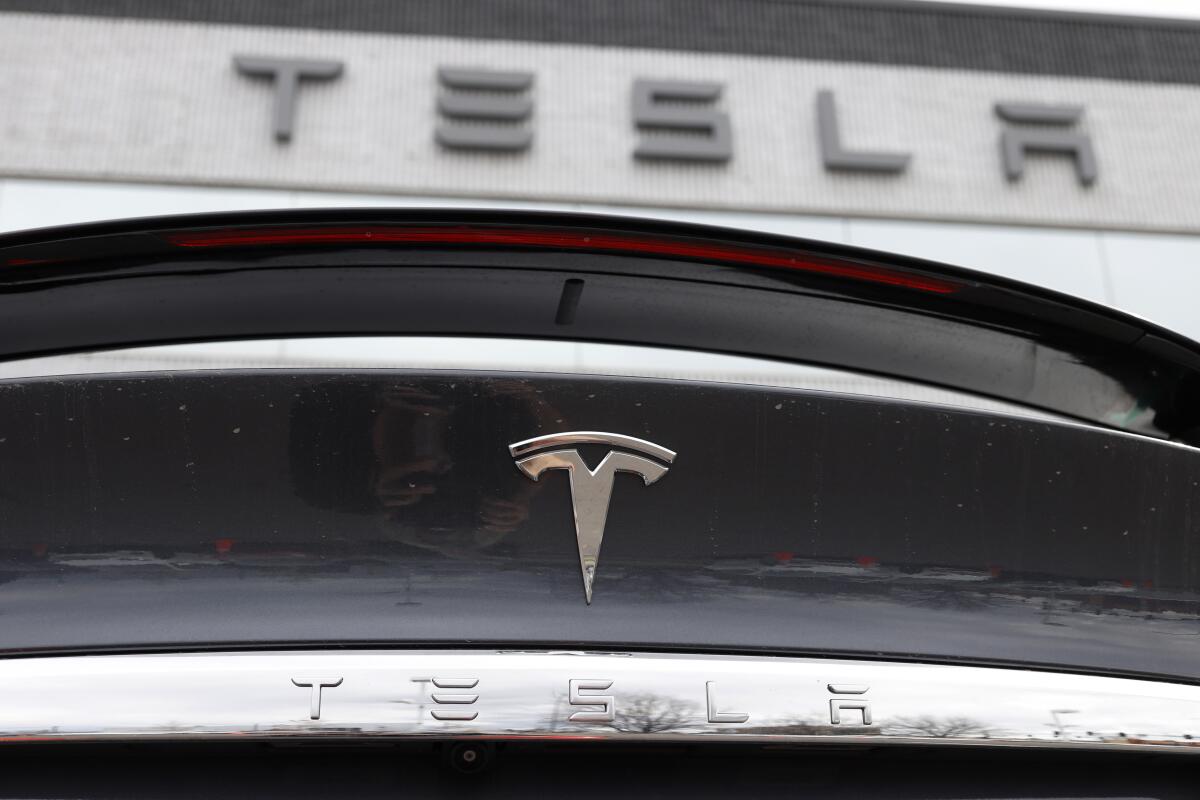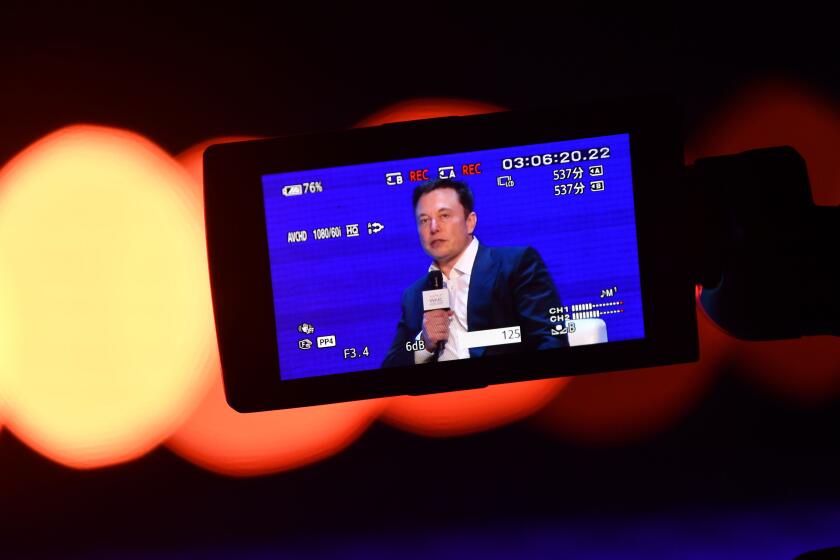California attorney general investigating Tesla on Autopilot safety, false advertising

- Share via
Tesla is under investigation by the California attorney general concerning the safety of its Autopilot feature and complaints of false advertising, according to a CNBC report.
CNBC obtained materials from Greg Wester, a 2018 Tesla Model 3 owner, who filed a complaint with the Federal Trade Commission in August 2022 over the safety of his vehicle. In the complaint, he alleged the car’s driver assistant Autopilot feature would brake suddenly, a phenomenon known as “phantom braking.” He also said he felt misled by Tesla’s so-called Full Self-Driving program — a premium feature for which he paid thousands of dollars, the CNBC report said.
California‘s attorney general’s office followed up with Wester during the second quarter of 2023 to interview him regarding the complaint filed with the FTC. Additionally, the office’s consumer protection division this month sought information from a former unnamed Tesla employee who worked on the FSD program for an “unspecified but active investigation” into Tesla, according to the CNBC report.
In a class-action lawsuit, customers say they were duped by Tesla’s $15,000 Full Self-Driving feature. Company lawyers say failure isn’t fraud.
The attorney general’s office declined to comment. The FTC and Tesla could not immediately be reached for comment.
To date, no Tesla is capable of fully driving itself. Autopilot, a feature meant for highway driving, is an advanced driver assist program that enables a vehicle to steer, change lanes, accelerate and brake. Full Self Driving is billed as a more advanced technology that supposedly can stop for stoplights and stop signs and make turns at intersections.
Regulatory agencies have been investigating Tesla’s automated technology for years. Several fatalities have been linked to Autopilot software. The National Highway Traffic Safety Administration has several investigations open, including a probe into why Teslas seem to disproportionately crash into emergency vehicles parked on the roadside. The agency has set no public timeline for a determination.
The California Department of Motor Vehicles says it’s looking into the matter as well.
More to Read
Inside the business of entertainment
The Wide Shot brings you news, analysis and insights on everything from streaming wars to production — and what it all means for the future.
You may occasionally receive promotional content from the Los Angeles Times.













